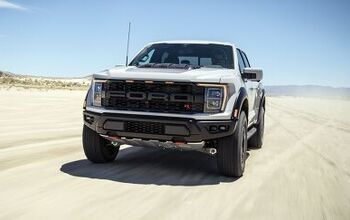These Are the Most Reliable Cars in Each Category, Says J.D. Power
Recent findings from J.D. Power show that after three years of ownership, vehicle dependability has diminished. Owners are reporting more problems compared to the previous year, with the industry average escalating to 190 problems per 100 vehicles (PP100). The disparity in problem rates between the initial 90 days and three years of ownership has surged, indicating a notable decrease in vehicle dependability over time.
Electrified Vehicles: A Mixed Bag
Owners of BEVs and PHEVs report more problems than those with gasoline and hybrid vehicles, with tire replacement being a notable issue for BEV owners.
Segment-by-Segment Breakdown
The study lists the most reliable vehicles across different categories, with Toyota Motor Corporation achieving the most segment awards. Here is an organized summary of the top-ranking models:
Compact and Midsize Cars:
Compact Cars:
- Toyota Corolla
- Honda Civic
- Toyota Prius
Compact Premium Cars:
- Lexus IS
- BMW 4 Series
- BMW 3 Series
Midsize Cars:
- Toyota Camry
- Chevrolet Malibu
- Hyundai Sonata
Midsize Premium Cars:
- Lexus ES
Premium Sporty Cars:
- Porsche 718
- Chevrolet Corvette
Pickup and Van Segments:
Large Heavy Duty Pickups:
- Ford Super Duty
- GMC Sierra HD
- Chevrolet Silverado HD
Large Light Duty Pickups:
- Toyota Tundra
- GMC Sierra
- Chevrolet Silverado
Midsize Pickups:
- Toyota Tacoma
- Chevrolet Colorado
- Ford Ranger
Minivans:
- Kia Sedona
- Toyota Sienna
- Honda Odyssey
Standout Brands
Lexus is recognized as the most reliable brand overall, followed by Porsche and BMW for premium brands. In the mass market, Toyota ranks highest with Buick and Chevrolet in a close contest for reliability.
Methodology of the Study
The study reflects the experiences of over 30,000 owners of 2021 model-year vehicles after three years. It encompasses 184 problem areas across nine vehicle categories to provide a detailed analysis of long-term vehicle reliability.
This article was co-written using AI and was then heavily edited and optimized by our editorial team.
More by TTAC Staff
Latest Car Reviews
Read moreLatest Product Reviews
Read moreRecent Comments
- FreedMike I'm going to recommend the same car I let my kids drive - an early 2000s LeSabre. Hail to the Church of 3800.
- ToolGuy So OEM ICE powertrain engineers are finally ready to work more than 15 minutes a week? Good. Here are some ideas:a) eliminate the head gasketb) talk to the truck guys about how to build a transmissionc) go ceramic if you mustd) make the engine modular/easily swappable and sell me two or three of them when I buy the vehicle (Subaru, you can throw in one extra one for free, it might be needed)• Honda (not included in this conference because they were sleeping, and dreaming, harnessing the power of dreams) has a straightforward strategy: Just stay asleep for the next 12 years and see how things go.• Toyota is getting super drowsy and sees the Honda playbook as increasingly appealing. I.e., Nap time!• Subaru is stuck and they know it.• When Mazda lapses into talk of rotary engines, there is no plan.
- Ajla I had a a series of Grand Ams as a teenager (a Quad 4 "91 and 3.3L '93). One sister had a '72 Cadillac El Dorado. The other sister had a Jeep Commander.
- Tassos Jong-iL The Kingdom of North Korea Condemns this!
- Argistat Re the carbon use for "necessary battery mining for all-electric vehicles."... Matt, I assume you're talking about mining to produce the battery. Does anyone know what that carbon number is vs. the carbon use to build and keep refueling an ICE vehicle? Or a hybrid? I don't know the answer.An EV battery can in some cases have a very long life. A close friend has an 8 year old Telsa Model X with 116K miles on the battery, and the battery still has 94% of its original capacity.


































Comments
Join the conversation